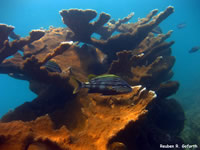 FNR 201 – Marine Biology (3 credits)
FNR 201 – Marine Biology (3 credits)
An introduction to the major groups of marine organisms and their habitats. Emphasis is on application of ecological principles to the conservation of important marine species. Offered in even numbered years during Fall semester.
Prerequisites: BIOL 110 or BIOL 121 or BIOL 226
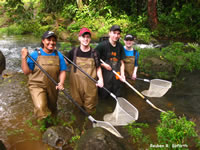 FNR 351 – Aquatic Sampling Techniques (3 credits)
FNR 351 – Aquatic Sampling Techniques (3 credits)
An introduction to laboratory and field sampling methods in aquaculture, limnology, and fisheries biology. Emphasis will be place on the proper use of laboratory equipment and sampling gears, as well as the development of sampling protocols for collection representative, non-biased fisheries and aquatic sciences data. This course is typically offered during spring semester.
Prerequisites: FNR 242, MA 224, and STAT 301
Co-Instructor: Dr. Maria Sepulveda
Course Syllabus
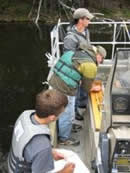 FNR 371 – Fisheries and Aquatic Sciences Practicum (4 credits)
FNR 371 – Fisheries and Aquatic Sciences Practicum (4 credits)
Field instruction and practice during the summer following the sophomore year. All students focus on land measurement and surveying, inventory of forest, wildlife, and aquatic resources, and integrated resource management. The main session of this course is followed by specific modules in fisheries, forestry, and wildlife management. Students pay university tuition plus a fee for living facilities and subsistence. This course is typically offered during the summer in the upper peninsula of Michigan.
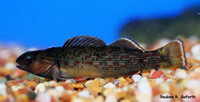 FNR 551 – Advanced Ichthyology (3 credits)
FNR 551 – Advanced Ichthyology (3 credits)
Advanced ichthyology presents an advanced study of the biology of fishes. In particular, the course covers aspects of the morphology, physiology, development, behavior, evolution, diversity, and ecology of fish throughout the world. Offered in odd numbered years during Spring semester.
Prerequisites: FNR 241, FNR 351 or BIOL 286 (or equivalent)
Course Syllabus
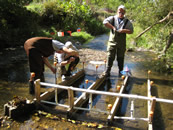 FNR 552 – Advanced Freshwater Ecology (3 credits)
FNR 552 – Advanced Freshwater Ecology (3 credits)
Advanced freshwater ecology presents a comprehensive overview of the form, function, and biological organisms of freshwater ecosystems. Specifically, students learn the fundamental biological and ecological components of continental streams, rivers, and lakes, with some additional consideration given to global freshwaters. This course is typically offered during Spring Semester.
Prerequisites: BIOL 110 or BIOL 121 or BIOL 226
Special Topics
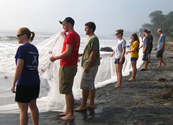 FNR 498 – Marine Biology Practicum (1 credit)
FNR 498 – Marine Biology Practicum (1 credit)
Marine Biology Practicum offers students with the opportunity to collect and study marine organisms in the field. The course will be held at Hunting Island State Park (South Carolina) over fall break. Students will tent camp at the park’s campground and will be expected to participate in all aspects of the field sampling. Students will be graded based on: 1) their level of participation (10%), 2) their completion of an assigned animal collection (25%), and 3) a written examination immediately following the trip (50%). An additional course fee to cover travel costs will be required for all students in the class. Students will also be required to attend 2 mandatory meetings before the trip and 1 meeting following the trip to take the written examination. Enrollment is limited to 16 total students.
Prerequisites: Consent of Instructor
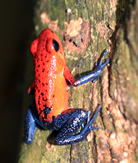 Costa Rica Research Externship
Costa Rica Research Externship
An introduction to the major groups of marine organisms and their habitats. Emphasis is on application of ecological principles to the conservation of important marine species. Offered in even numbered years during Fall semester.
Prerequisites: Consent of Dr. Goforth

